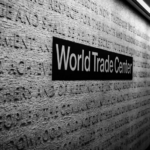IMPORT TARIFFS — The United States intends to levy a 25 percent tax on cars and other automotive parts, which some have predicted will add thousands of dollars of new cost for car buyers. The tariffs, to take effect in early April and May, are intended to result in growth in the domestic automotive industry, President Trump said.
The US imports a lot of cars each year — roughly eight million vehicles worth $240 billion. Major exporters to the US include Mexico, South Korea, Japan, Canada and Germany. The tariffs could disrupt the established global supply chains and trade relations.
Implications for the US and Global Markets
The announcement has elicited reactions across the board. The news had a mixed impact on US auto makers. The tariffs will likely spark changes in both production and pricing in the United States car market, analysts say. The tariffs will affect both finished vehicles and components, though there are temporary exemptions for parts arriving from Canada and Mexico while a mechanism for determining duties is established, the White House said.
Around the world, reactions have been mixed. The Japanese prime minister, Shigeru Ishiba, said that his government would consider all possible responses. Shares of Japanese carmakers declined in early trading.
THE EUROPEAN UNION (EU): Economic Impact and Trade Considerations
Since tariffs are taxes paid on foreign entries, they help promote an in-house advantage. But it could also raise costs for companies that rely on foreign-made parts. Heavy import reductions and slight vehicle price increases in the US through a 25% tariff have been affirmatively captured in research published by the US International Trade Commission.
The tariffs coincide with the rollout of reciprocal tariffs, which are intended to balance trade deficits with certain countries. How those measures interact exactly is unclear.
Global Responses and Economic Engagement
International players responded to the new tariffs. The Canadian prime minister, Mark Carney, described the measure as a “direct attack” on Canadian automotive industry. “First, we will assess our response,” European Commission President Ursula von der Leyen said, referring to the E.U. President Trump has signalled a willingness to impose more tariffs if the E.U. and Canada subsequently take actions viewed as economically harmful to the U.S.
The UK is one of the US’s main sources of luxury vehicles and has said it would want to secure a trade deal before any tariffs are imposed. The UK and US governments must talk according to the motor manufacturers and traders’ society (SMMT).
How the Industry Has Responded and the Future Outlook
Pre-existing tariffs on steel and aluminium are rippling through the rest of the auto industry. The major carmakers had been seeking carve-outs from the additional duties. Hyundai, the South Korean auto manufacturer, recently pledged similar, investments more recently as they get ready to break ground on a new steel plant in their US. President Trump hailed this investment as evidence of how well the tariffs were working.
The tariffs have been embraced by the United Autoworkers union, which views them as a way to prevent free trade from hitting working-class communities. Groups such as the American Automotive Policy Council have committed to grow automotive production and jobs in the US.






